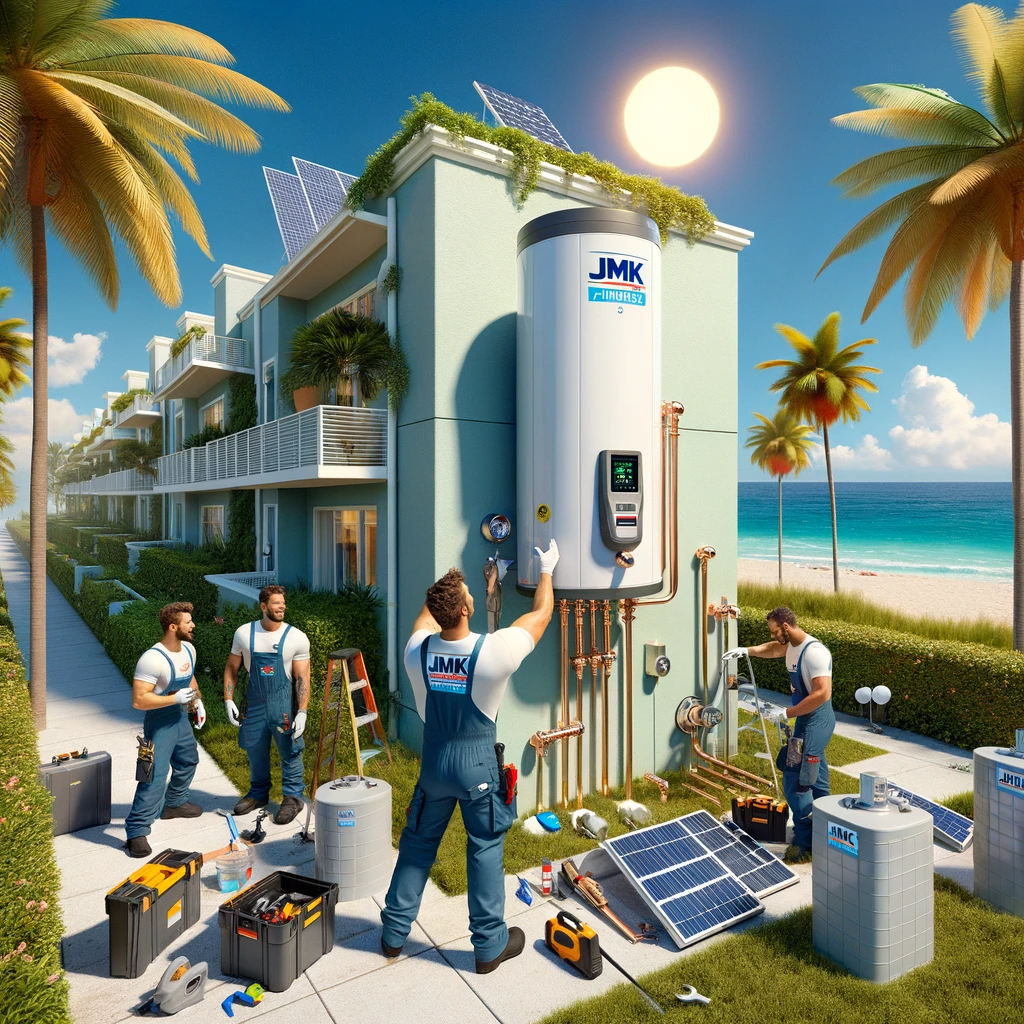Energy-Efficient Water Heaters to Minimize Environmental Impact

Did you know you can dramatically minimize the environmental impact with energy-efficient water heaters?
In this guide, we’ll explore the benefits of these eco-friendly alternatives and show you how easy it is to make the switch.
You’ll learn not only how to install and maintain them, but also how you’re contributing to a healthier planet, minimizing environmental impact by using efficient Water Heaters.
Let’s start saving energy, reducing carbon footprint, and preserving our environment together!
Key Takeaways
- Energy-efficient water heaters help minimize energy waste and reduce greenhouse gas emissions.
- Traditional water heaters consume more energy and emit more emissions compared to energy-efficient ones.
- Switching to energy-efficient water heaters leads to cost savings and a cleaner environment.
- Regular maintenance of energy-efficient water heaters is crucial for optimal performance and lifespan.
Comprehending the Energy-Efficient Water Heaters
To truly grasp the concept of energy-efficient water heaters, you’ve got to understand their core function and how they’re designed to minimize energy waste.
When you compare heater types, you’ll see variations in design, each type having its strengths and weaknesses. Traditional tank heaters may seem cost-effective initially, but over time, they consume more energy.
On the other hand, tankless heaters, though pricey upfront, save energy by heating water on demand. Heat pump heaters are even more efficient, using heat from the environment instead of generating it.
Environmental Impact of Conventional Water Heaters
Continuing your journey towards understanding water heaters, let’s delve into the environmental implications of traditional ones.
Traditional water heaters aren’t exactly friends with the environment. They’re notorious for their water heater emissions. By constantly maintaining a tank of hot water, they emit considerable greenhouse gases. This is especially true for heaters fueled by natural gas or oil.
When you compare the energy consumption of traditional and modern, energy-efficient heaters, the difference is clear. Traditional heaters consume more energy and, in turn, produce more emissions. They heat water round-the-clock, whether you need it or not, causing unnecessary energy waste.
Exploring the Benefits of Energy-Efficient Water Heaters to Minimize the Environmental Impact.
Switching to energy-efficient water heaters offers numerous benefits.
One key advantage is cost savings. By using less energy to heat your water, you’ll see a significant reduction in your monthly bills. Over time, these savings can add up, offsetting the initial investment of the water heater.
Additionally, these heaters contribute to healthier living. They emit fewer greenhouse gases compared to traditional models, enhancing air quality. Plus, they reduce the strain on natural resources. Less demand for energy means less reliance on fossil fuels, which leads to a cleaner, healthier environment.
Transitioning to Energy-Efficient Systems
Now that you’re aware of the benefits, it’s time you considered making the shift to energy-efficient water heaters.
Before you jump in, it’s critical to perform a cost analysis. While the initial outlay may be higher, remember that these heaters can save you a significant amount in the long run. They use less energy, which directly translates into lower utility bills.
As for the installation process, it’s not much different from the traditional heaters. It’s best to call in professionals to ensure the job is done right. They’ll disconnect your old unit, install the new one, and test it for proper functioning.
Proper Maintenance for Your Energy-Efficient Water Heater
Regularly maintaining your energy-efficient water heater isn’t just a good idea, it’s essential for maximizing its performance and lifespan. Periodic inspections are a key part of this maintenance. You should check for leaks, inspect the anode rod to prevent rust, and ensure all components are functioning properly.
Also, pay attention to temperature settings. If it’s set too high, you’re not only risking scalding but also wasting energy. A lower setting, ideally around 120 degrees, is more efficient and still sufficiently hot for your needs.
Frequently Asked Questions
How Much Does an Energy-Efficient Water Heater Cost in Comparison to a Traditional One?
In a cost analysis, you’ll find energy-efficient water heaters are more expensive upfront than traditional ones. However, they’re cheaper in the long run due to their efficiency comparison and reduced energy usage.
Can Energy-Efficient Water Heaters Also Run on Renewable Energy Sources Like Solar Power?
Yes, you can definitely integrate solar panels with your energy-efficient water heater. It’s a smart move, leveraging renewable energy benefits which further reduces your carbon footprint and saves on your energy bills.
Are There Any Federal or State Incentives for Switching to Energy-Efficient Water Heaters?
Yes, you’re eligible for federal and state incentives when switching to energy-efficient water heaters. You’ll find tax benefits and rebates that can significantly reduce your upfront costs. Always check your local government’s incentive programs.
How Long Does the Installation Process for an Energy-Efficient Water Heater Usually Take?
Installing an energy-efficient water heater isn’t too difficult and usually takes a few hours. However, constant maintenance is essential, so you’ll need to schedule regular check-ups to ensure it’s running efficiently.
Can Energy-Efficient Water Heaters Also Be Used for Large-Scale Purposes Like in Hotels or Factories?
Yes, you can use energy-efficient water heaters for large-scale purposes. However, consider the efficiency ratings comparison and potential industrial usage challenges to ensure they’re effective and cost-efficient in a larger setting.
Conclusion
So, you see, it’s not just about saving money. Choosing energy-efficient water heaters significantly reduces your environmental footprint. By making the switch, you’re not just reaping the benefits of lower energy bills but also contributing to a healthier planet.
Keep up the maintenance and your water heater will keep up its efficiency. It’s a small change with a big impact and that is how Minimizing Environmental Impact By Using Efficient Water Heaters
Now, isn’t that worth considering for your next water heater upgrade?